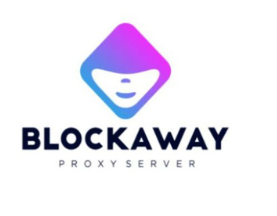Free Web Proxy where privacy and security are constant concerns, using a Web Proxy can be a game-changer. But what exactly is a Croxy proxy and how can it benefit you? This article will guide you through everything you need to know about free web proxies, from how they work to the advantages and limitations of using them. Let’s dive in!
What is a Web Proxy?
Croxy Proxy acts as an intermediary between your computer and the internet when you access the internet through a proxy, your requests are routed through a proxy server before reaching the destination website this helps mask your original IP address and provides an extra layer of privacy. In simple terms, a web proxy serves as a gateway, allowing you to browse the web without revealing your true identity.
How Does a Free Web Proxy Work?
Web Proxy functions by intercepting requests from your browser and forwarding them to the website you’re trying to access In return, the website’s response is passed back to your browser via the proxy server this process hides your IP address, helping maintain your anonymity online however it’s important to note that free web proxies may come with limitations they often have fewer servers, leading to slower connections compared to paid proxies the biggest difference between free and paid proxies is the range of features and security measures.

Why Use a Free Web Proxy?
Using a free web proxy can offer several benefits, such as:
- Privacy and anonymity: Your real IP address remains hidden, which can protect you from online tracking.
- Bypassing geographical restrictions: Want to access content that’s only available in certain regions? A web proxy can help.
- Security benefits: A proxy can protect your identity on public Wi-Fi networks, where your data could be at risk of interception.
Types of Proxies Available
There are different types of proxies that offer various features depending on your needs:
- HTTP Proxies: These are primarily used for web browsing and do not encrypt traffic, making them faster but less secure.
- SOCKS Proxies: More versatile than HTTP proxies, these can be used for web browsing, email, file transfers, and other forms of traffic.
- Transparent Proxies: These do not hide your IP address and are often used by companies for caching websites to speed up access.
Advantages of Using a Free Web Proxy
free web proxy offers several attractive benefits:
- Free access to restricted content: Whether it’s accessing region-blocked streaming services or bypassing workplace restrictions, a free proxy makes it possible.
- No cost: As the name implies, it’s free! You can enjoy the benefits of proxy services without paying a subscription.
- Ease of use: Free proxies are typically simple to set up and don’t require any special software.
Disadvantages of Free Web Proxies
While free web proxies are appealing, they come with certain drawbacks:
- Security risks: Free proxies may not offer encryption, leaving your data vulnerable to interception by hackers.
- Slow connection speeds: Due to limited server resources, free proxies are often slower compared to paid alternatives.
- Limited features: Paid proxies typically offer better security, faster speeds, and more advanced features.
Common Use Cases for Free Web Proxies
Here are a few popular use cases where free web proxies come in handy:
- Accessing blocked websites: If a site is blocked in your country or workplace, a free proxy can give you access.
- Public Wi-Fi security: When connecting to public networks, proxies add a layer of anonymity.
- Avoiding website tracking: Using a proxy makes it harder for websites to track your browsing habits.
How to Choose the Best Free Web Proxy?
Choosing the right free web proxy requires careful consideration. Here are a few key factors to look at:
- Speed: Some proxies are faster than others. Test several to find one that offers decent speeds.
- Security: Look for proxies that offer encryption, even if they’re free.
- Reliability: Opt for well-known services with a good reputation.
How to Set Up a Free Web Proxy
- Find a reliable service: Choose from reputable proxy websites such as Hide.me or KProxy.
- Set up on your browser: For browsers like Chrome, Firefox, or Edge, you can add proxy settings directly in the settings menu.
- Troubleshoot issues: If you experience slow connections or blocked access, try switching to a different proxy server or clearing your browser cache.
Are Free Web Proxies Legal?
In most countries, using a free web proxy is legal, as long as you aren’t using it for illegal activities. However, some regions restrict access to certain proxy services, so it’s essential to be aware of the laws in your location.
The Role of Encryption in Web Proxies
Encryption plays a crucial role in ensuring your data is secure while using a proxy. Not all proxies offer encryption, especially free ones, so be cautious when handling sensitive information.
Free Web Proxy vs VPN: Which is Better?
While both proxies and VPNs provide privacy, a VPN offers stronger security by encrypting all of your internet traffic. VPNs are more comprehensive, but proxies are faster for quick browsing tasks.
Best Practices for Using Free Web Proxies Safely
To ensure you’re using a free web proxy safely, follow these tips:
- Avoid sharing personal information on unsecured proxies.
- Regularly clear your browser cache to prevent tracking.
- Switch servers if you notice a decrease in speed.
Conclusion
In a world where privacy and security are top concerns, using a free web proxy can be a valuable tool. While they come with limitations like slower speeds and fewer features, they’re an accessible way to protect your identity online. However, it’s important to use them wisely and consider whether a paid option or a VPN might better suit your needs.
FAQs
- Is using a free web proxy safe?
Free proxies can be safe, but they often lack encryption. It’s crucial to avoid entering personal data while using a free proxy. - Can a free proxy unblock Netflix?
Some proxies can bypass geo-restrictions, but Netflix is quite good at detecting and blocking proxies. - Are there any limits on free web proxies?
Yes, free proxies often have slower speeds, bandwidth limits, and fewer server options. - How do I know if a proxy is working?
You can check your IP address before and after using the proxy to see if it has changed. - What’s the difference between a proxy and a VPN?
A proxy only hides your IP address, while a VPN encrypts all of your internet traffic for greater security.

